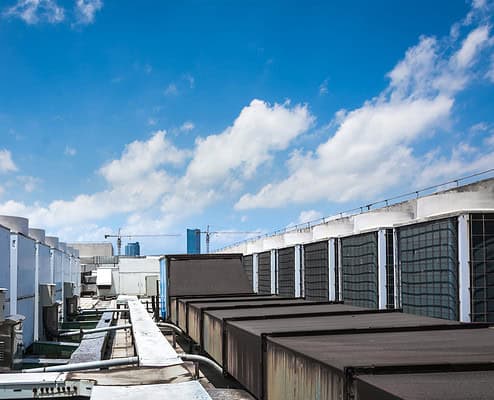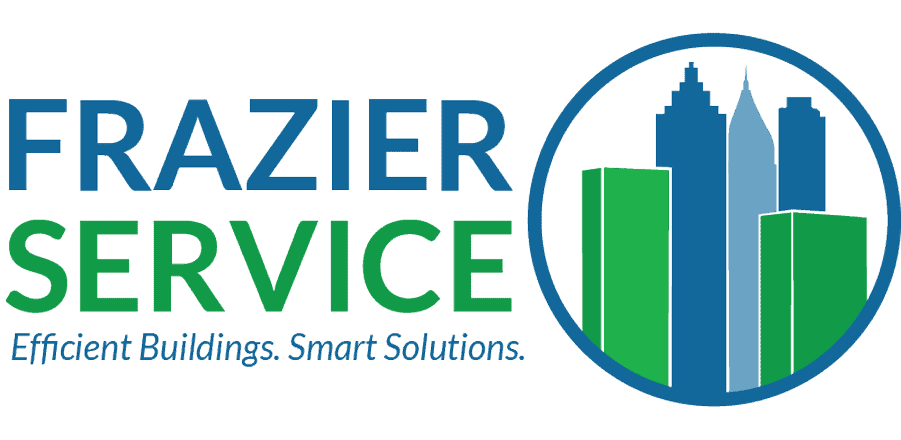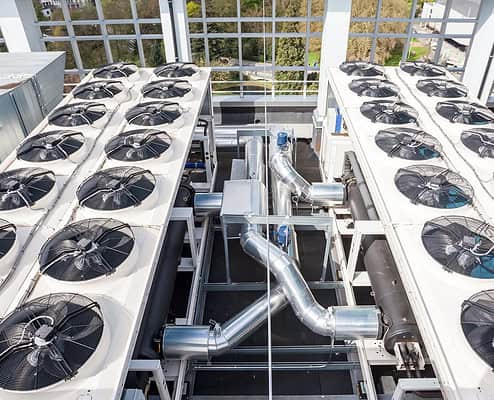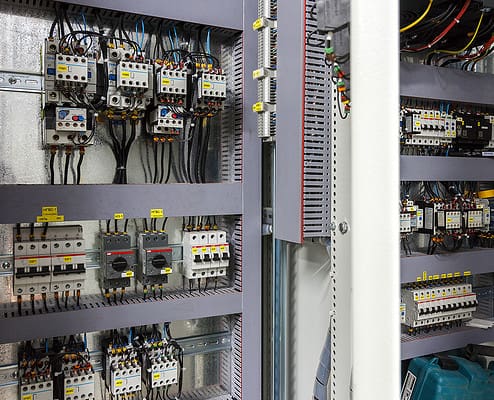 https://frazierservicecompany.com/wp-content/uploads/2024/04/Maximizing-Facility-Efficiency-With-Outsourced-HVAC-Support.jpg
1250
2000
AbstraktMarketing
/wp-content/uploads/2021/03/Fraizer-Service-Logo-Color-New.png
AbstraktMarketing2024-04-23 16:50:082024-04-24 15:27:09Maximizing Facility Efficiency With Outsourced HVAC Support
https://frazierservicecompany.com/wp-content/uploads/2024/04/Maximizing-Facility-Efficiency-With-Outsourced-HVAC-Support.jpg
1250
2000
AbstraktMarketing
/wp-content/uploads/2021/03/Fraizer-Service-Logo-Color-New.png
AbstraktMarketing2024-04-23 16:50:082024-04-24 15:27:09Maximizing Facility Efficiency With Outsourced HVAC SupportRooftop Units 101: Why Are Commercial HVAC Systems on the Roof?
Commercial HVAC systems are essential, providing heating, ventilation, and air conditioning to large complexes, office buildings, and shopping malls. You might have noticed that most commercial HVAC is on the roof. But why is this? After all, they weigh a ton—literally. Wouldn’t it be easier to just have them on the ground? Well, not quite. In this blog, we’ll delve into a few reasons why commercial rooftop units (RTUs) make more sense on the roof. Let’s get started!
Why Are AC Units on the Roof?
Below are some of the main reasons why commercial HVAC systems are typically rooftop units.
Accessibility
A commercial HVAC system requires regular maintenance to function efficiently. One of the primary reasons why commercial HVAC systems are located on the roof is the ease of accessibility for maintenance, repair, and replacement.
By placing the equipment on the roof, technicians can efficiently perform routine maintenance, such as changing filters and cleaning coils, without disturbing the daily operations of the building.
In the event of a significant repair or replacement, rooftop units eliminate the need for tearing down walls, cutting holes in floors, or disrupting building occupants.
Additionally, roof-mounted systems are usually outside of the building and therefore do not affect the indoor environment, preventing dust and debris from spreading throughout the business.
Space Constraints
Commercial buildings often have limited space for HVAC equipment, especially in urban areas where square footage is at a premium. With a roof-mounted system, organizations can take advantage of unused space on the roof and free up valuable real estate in the building. This can be especially beneficial for businesses that require different types of equipment on the ground level.
Rooftop units can double as a building’s heating and cooling system and an outdoor unit for space planning needs. Placing the system on the roof also reduces the risk of unauthorized tampering and theft, as it’s not accessible to the public.
Also, HVAC systems aren’t exactly the most attractive equipment. On the roof, they can be hidden from view. Nobody wants to walk past a noisy HVAC system when they enter a business.
Improved Efficiency
Another reason why commercial HVAC systems are located on the roof is to improve energy efficiency. The roof placement minimizes heat gain, which often results from the equipment being on the ground floor. Heat gain drives up cooling costs by reducing the source temperature of the air conditioning. Placing air conditioning units on the roof makes it possible to avoid heat gain altogether.
Rooftop units also facilitate better air circulation throughout the building. These HVAC systems uniformly distribute air throughout the building, minimizing ductwork and sudden temperature changes.
Roof-mounted units also require shorter and straighter ductwork than ground-level units, which improves the performance of HVAC components, is more cost-effective to operate, and requires less energy to cool or heat.
HVAC retrofits can help you save significant money. Even better? It’s easier than you might think!
Acoustics
Noise is often a problem when HVAC systems are located near occupied spaces. By placing the HVAC equipment on the roof, building managers can reduce outside noise levels while keeping the temperature comfortable indoors. Roof-mounted HVAC systems can also minimize noise levels inside commercial buildings.
If you’ve ever been next to a commercial HVAC system, you know precisely why you wouldn’t want them on the ground level or near a work area. The sound is a loud humming with occasional thuds and bangs as things turn on and off.
Accessibility for Airflow
An additional benefit of placing HVAC systems on the roof is the accessibility of clean air for the system. Unpolluted air outside improves the air inside. Rooftop placement is ideal for capturing cleaner air than that found near the ground level. Even though dirt, dust, and other particles weigh next to nothing, they still have weight, and gravity will naturally pull them down. So a few stories up, the HVAC system is exposed to fewer particles. Not only does it make the air cleaner, but it also means the system doesn’t have to work as hard.
Safety
Safety is a significant factor when deciding where to install HVAC systems. Placing these systems on the roof reduces the risk of fires spreading throughout the building, because fire naturally rises and takes longer to travel downward.
If there is a fire, the odds of getting trapped inside a building are significantly lower if the fire comes from above. Additionally, rooftop units are less likely to be damaged by floods or other natural disasters.
Sometimes the biggest disasters happen when an untrained person tries to fix a complicated system. It only takes a little to mess up an HVAC system completely. One simple mistake could cost hundreds of dollars in repairs or worse. As mentioned above, rooftop units prevent unqualified people from tampering with the system and injuring themselves or others.
Atlanta’s Top Choice for Commercial RTU Installation, Maintenance, and More
Are you in need of reliable and efficient commercial HVAC services? Look no further than Frazier Service! When it comes to rooftop units, we’re the go-to experts. Our team of skilled technicians has the expertise to handle any HVAC installation, repair, or maintenance needs. Plus, with our competitive pricing and unmatched customer service, you won’t find a better value anywhere else. Schedule a free consultation to learn more or check out our full suite of services to get started.







